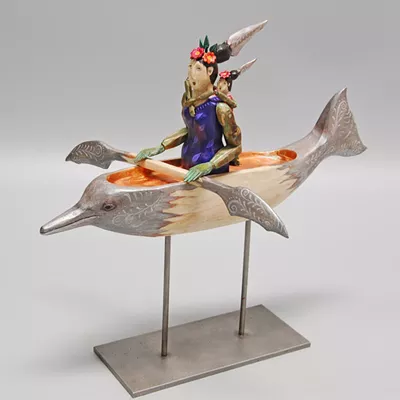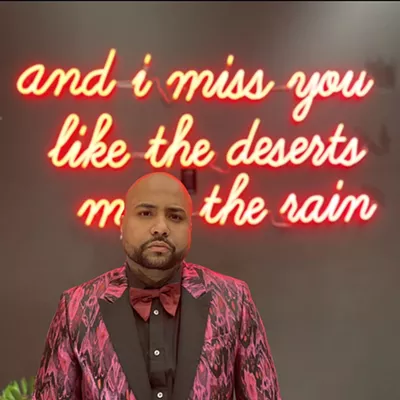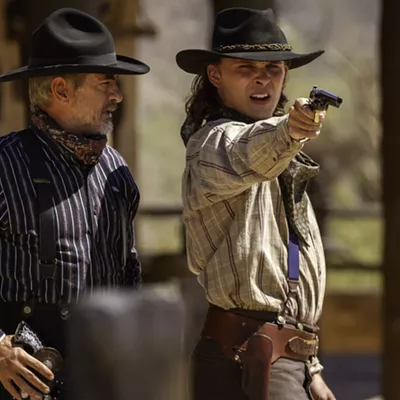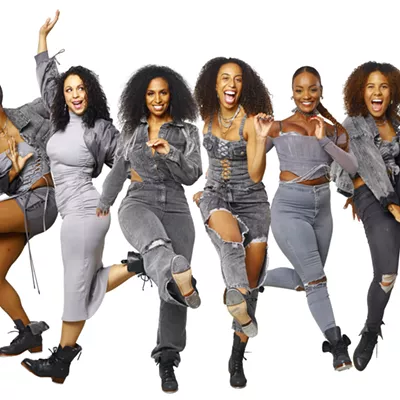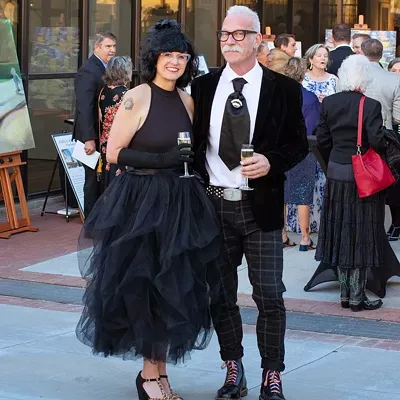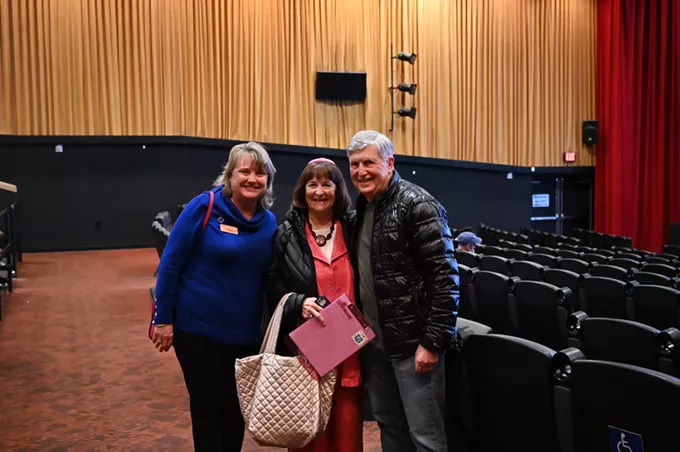
Often, film festivals aren’t just merely for entertainment. They are meant to educate and share experiences.
In its 34th year, the Tucson J International Film Festival explores Jewish culture and history through film and related activities.
From Wednesday, Jan.8, to Sunday, Jan. 19, films will be screened throughout Tucson. This includes the Tucson Jewish Community Center, Unscrewed Theater, the DesertView Performing Arts Center and the Tucson Jewish Museum and Holocaust History Center. The festival is put on by the community center, which is also known as the Tucson J.
Some films will be shown online from Friday, Jan 17, to Friday, Jan. 31. Others, like “Bad Shabbos,” “We Will Dance Again,” and “Bella!” are only available to view in person.
At many of the screenings, there will be complimentary popcorn and beverages. Students from the Tucson Hebrew Academy will sell additional concessions to raise money for their eighth-grade trip.
The festival spotlights shorts and feature-length films of different genres, as well as documentaries.
Film festival director Jennifer Selco said over the years, the selection of films has expanded.
“We have the opportunity to tell the diverse story of Jewish peoplehood,” said Selco, who also serves as senior director of Jewish living and engagement for the Tucson J.
“Jewish peoplehood is this idea that Jews are connected to one another through across time and space. So, even though we may speak differently, and we may look different, there are definitely some shared customs. This is a celebration of Jewish values and Jewish storytelling and an opportunity for the Jewish community to celebrate and to learn. It’s also an opportunity to build literacy across the broader community as well.”
Along with film screenings, the festival will also have facilitated activities related to the films, including talkbacks.
Actor Mark Feuerstein, known for his work in “Royal Pains,” “What Women Want,” “Prison Break” and “The Baby-Sitters Club,” will speak after the screening of the film “Guns & Moses.”
In the film, he stars as a rabbi who takes up arms to protect his community from corruption and violence. It will be screened at the community center at 7 p.m. Saturday, Jan. 11.
Selco said the festival has a multifaceted approach in highlighting Jewish culture and subject matter, which includes film screenings, talkbacks and activities.
A film festival committee, made up of 10 volunteers from various backgrounds, decide on the films being shown at the festival.
“They meet year-round to screen films and create wrap-around programming. That is what ultimately comes together as a festival experience,” Selco said.
Tucson J International Film Festival will showcase a mixture of more established and emerging filmmakers from around the world. This year, there will be films from the United States, Israel, Italy, Australia, France and India.
The film “Bad Shabbos” centers around a farce that takes place during a shabbat dinner in New York. This film will be screened at 7 p.m. Thursday, Jan. 9, at the community center.
The documentary “Resistance: They Fought Back” looks at Jewish resistance during the Holocaust. This film will be screened at the Tucson Jewish Museum and Holocaust Center at 3 p.m. Wednesday, Jan. 15. Before the screening, attendees can tour the museum and center.
Offerings such as “We Will Dance Again,” “Arugam Bay” and “Listen” delve into how war and terrorism have affected Israeli youth.
The documentary “We Will Dance Again” focuses on the Oct. 7, 2023, attack when 364 people were killed and 40 taken hostage during the Nova Music Festival. The film shares stories of victims and heroic individuals, as well as footage of the Hamas attack. The film will be screened at the community center at 4 p.m. Sunday, Jan. 12. In the Tucson J’s sculpture garden, an exhibit will honor those survivors and victims of the attack.
Visitors can also paint poppies, which will be added to the display.
“It’s an opportunity to see this film, to learn more deeply about the events of Oct. 7, to be able to remember the victims and then create art that will be lasting and add beauty to our facility,” Selco said.
The film “Call Me Dancer” follows a street dancer from Mumbai, who discovers a love for classical dance. The film will be screened at the community center at 4 p.m. Sunday, Jan. 19. At 3:30 p.m. ZUZI! Dance will perform and a local Indian restaurant will provide complimentary appetizers.
The film “Bella!” tells the story of activist, congresswoman and lawyer Bella Abzug, who was known for her hats. Audience members are encouraged to wear stylish hats for a hat contest. There will also be a display of hats and embellishments from Marion Art Handmade. The film will be screened at the community center at 1 p.m. Friday, Jan. 17.
“Yaniv,” the story of a teacher in the Bronx who tries to raise money for school play through an underground card game run by Hasidic Jews, will be shown at the community center at 1 p.m. Sunday, Jan. 19. After the screening, audience members can learn to play Yaniv, which is similar to blackjack.
A block of short films will be shown at 3 p.m. Monday, Jan. 13, at the DesertView Performing Arts Center.
One of the shorts was created by Brooke Sebold, a nonbinary filmmaker who graduated from the Tucson Hebrew Academy and now lives in the Los Angeles’ Silver Lake neighborhood. Their short film “Grandma Bruce” was inspired by their relationship with their grandma and their shared car, a 2001 Lexus Sedan that Sebold lovingly named “Bruce.”
The film tells the story of “a queerdo whose old car comes to life with the spirit of their judgmental grandmother, a backseat driver from the ever after.”
Sebold had a very personal connection with the car and didn’t want to give it up until they made the film.
“I loved that old car so much,” Sebold said.
“My grandmother had gifted it to me, and it was really, really hard to say goodbye to it. I feel like saying goodbye to that old car was also saying goodbye to some of the cultural ideas my grandmother had around my life and whatnot. It felt bigger than just saying goodbye to a car. It felt like I was choosing an identity and future for myself that in some ways differs from the life that she had anticipated or expected of me, but also she was wildly supportive of my choices.”
Tucson J International Film Festival
WHEN: Various times Wednesday, Jan. 8 to Sunday, Jan. 19
WHERE: Tucson Jewish Community Center, 3800 E. River Road, Tucson. Unscrewed Theater, 4500 E. Speedway Boulevard, Tucson. Tucson Jewish Museum and Holocaust Center, 564 S. Stone Avenue, Tucson. DesertView Performing Arts Center, 39900 S. Clubhouse Drive, Tucson
COST: $120 for festival pass, $60 for six-pack, $12 for individual tickets online per household and for individual filmgoer in-person
INFO: tucsonfilm2025.eventive.org



